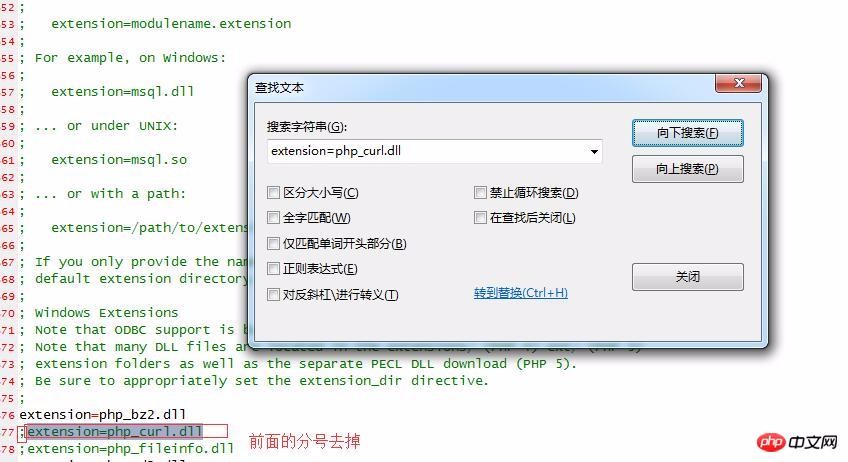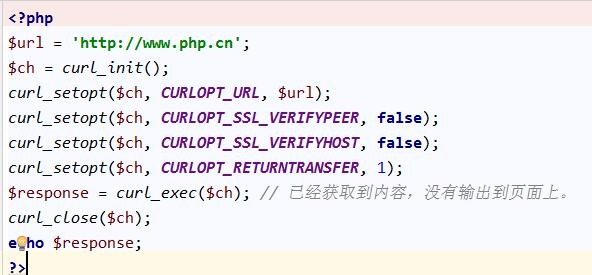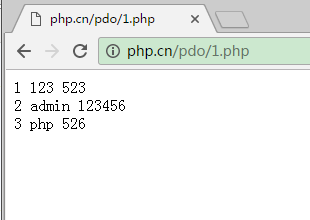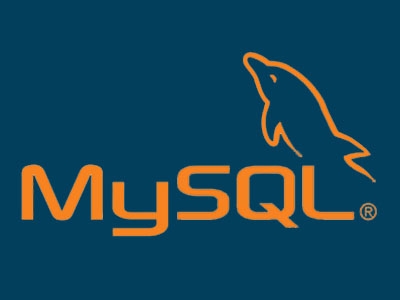Recommend 10 usage examples of the exec() function
In PHP, the curl_exec function is one of the PHP cURL function lists. Its function is to execute a cURL session. This article summarizes some usage examples of the php curl_exec function. 1. Detailed explanation of usage examples of PHP curl_exec function. This article explains in detail the syntax and examples of PHP curl_exec function. This function should be called after a cURL session is initialized and all options are set. Its return value: TRUE on success, or FALSE on failure. However, if the CURLOPT_RETURNTRANSFER option is set, the function will return the result of the execution if it succeeds, and FALSE if it fails. 2. php curl_exec() function CURL method of obtaining the return value. This article mainly introduces two methods of php curl_exec() function CURL obtaining the return value. The first method is to obtain the page content and directly output the example. The second method of obtaining page content without directly outputting example
1. php curl_exec() return value summary

Introduction: In PHP, the curl_exec function is one of the PHP cURL function lists. Its function is to execute a cURL session. This article summarizes some usage examples of the php curl_exec function.
2. php curl_exec() function CURL method to get the return value

Introduction: There is a parameter CURLOPT_RETURNTRANSFER in CURL: This parameter returns the information obtained by curl_exec() in the form of a file stream instead of outputting it directly. For example: The function of the CURLOPT_RETURNTRANSFER parameter is to assign the content obtained by CRUL to a variable. It defaults to 0 and directly returns the text stream of the obtained output. Sometimes, it would not be good if we want to use the return value for judgment or other purposes. So, sometimes we want the returned content to be stored as a variable instead of output directly, so what should we do?
3. Three ways to execute SQL statements in PDO

##Introduction: In PDO, we can use three ways to execute SQL statements, namely the exec() method, the query method, and the prepared statement prepare() and execute() methods~
4. A brief introduction to the troubleshooting method for PHP's exec() function without return value (recommended)

Introduction: The editor below will bring you a brief discussion on the troubleshooting method of PHP's exec() function not returning a value (a must-read). The editor thinks it’s pretty good, so I’ll share it with you now and give it as a reference. Let’s follow the editor to take a look
5. Details introduction to the method of using PDO exec() function to query the number of affected rows after execution

Introduction: This article mainly introduces how to use the exec() function under PDO to query the number of affected rows after execution. Combined with the example form, the relevant implementation techniques and precautions for querying the number of affected rows after the execution of the exec() function when using PDO to perform add, delete, and modify operations in PHP are analyzed. Friends in need can refer to the following
6. Execute SQL statements in PDO

7.
PHP Security-Command Injection

#Introduction: Command Injection Using system commands is a dangerous operation, especially when you try to use remote data to construct the command to be executed. So true. If contaminated data is used, command injection vulnerabilities arise. Exec()...
8. Python built-in function——compile

Introduction: This function is used to compile the source code of a string. The result can generate bytecode or AST (abstract syntax tree). The bytecode can be executed using the function exec(), and The AST can use eval() to continue compilation. 2. The parameter source is the source code of a string, or an array of AST objects.
9. Analysis using PHP shell script

##Introduction: After a long period of development of PHP, many users know PHP very well. Here I will express my personal understanding and discuss it with everyone. Mostly I use exec() commands and data arrays for everything. Or use shell_exec() for simpler commands, especially if you don't care about the results.

【Related Q&A Recommendations】:
javascript - Help on regular expressions
##php - Warning: exec() [function.exec]: Unable to fork, problem with configuring git webhook
php - swoole_process->exec() cannot redirect output to the specified file
shell - PHP ends the C program loop
The parameters in the java.lang.Runtime.getRuntime().exec(cmd) command cannot use spaces. what to do?
The above is the detailed content of Recommend 10 usage examples of the exec() function. For more information, please follow other related articles on the PHP Chinese website!

Hot AI Tools

Undresser.AI Undress
AI-powered app for creating realistic nude photos

AI Clothes Remover
Online AI tool for removing clothes from photos.

Undress AI Tool
Undress images for free

Clothoff.io
AI clothes remover

Video Face Swap
Swap faces in any video effortlessly with our completely free AI face swap tool!

Hot Article

Hot Tools

Notepad++7.3.1
Easy-to-use and free code editor

SublimeText3 Chinese version
Chinese version, very easy to use

Zend Studio 13.0.1
Powerful PHP integrated development environment

Dreamweaver CS6
Visual web development tools

SublimeText3 Mac version
God-level code editing software (SublimeText3)

Hot Topics
 1393
1393
 52
52
 1205
1205
 24
24
 Alipay PHP SDK transfer error: How to solve the problem of 'Cannot declare class SignData'?
Apr 01, 2025 am 07:21 AM
Alipay PHP SDK transfer error: How to solve the problem of 'Cannot declare class SignData'?
Apr 01, 2025 am 07:21 AM
Alipay PHP...
 Explain JSON Web Tokens (JWT) and their use case in PHP APIs.
Apr 05, 2025 am 12:04 AM
Explain JSON Web Tokens (JWT) and their use case in PHP APIs.
Apr 05, 2025 am 12:04 AM
JWT is an open standard based on JSON, used to securely transmit information between parties, mainly for identity authentication and information exchange. 1. JWT consists of three parts: Header, Payload and Signature. 2. The working principle of JWT includes three steps: generating JWT, verifying JWT and parsing Payload. 3. When using JWT for authentication in PHP, JWT can be generated and verified, and user role and permission information can be included in advanced usage. 4. Common errors include signature verification failure, token expiration, and payload oversized. Debugging skills include using debugging tools and logging. 5. Performance optimization and best practices include using appropriate signature algorithms, setting validity periods reasonably,
 How does session hijacking work and how can you mitigate it in PHP?
Apr 06, 2025 am 12:02 AM
How does session hijacking work and how can you mitigate it in PHP?
Apr 06, 2025 am 12:02 AM
Session hijacking can be achieved through the following steps: 1. Obtain the session ID, 2. Use the session ID, 3. Keep the session active. The methods to prevent session hijacking in PHP include: 1. Use the session_regenerate_id() function to regenerate the session ID, 2. Store session data through the database, 3. Ensure that all session data is transmitted through HTTPS.
 Describe the SOLID principles and how they apply to PHP development.
Apr 03, 2025 am 12:04 AM
Describe the SOLID principles and how they apply to PHP development.
Apr 03, 2025 am 12:04 AM
The application of SOLID principle in PHP development includes: 1. Single responsibility principle (SRP): Each class is responsible for only one function. 2. Open and close principle (OCP): Changes are achieved through extension rather than modification. 3. Lisch's Substitution Principle (LSP): Subclasses can replace base classes without affecting program accuracy. 4. Interface isolation principle (ISP): Use fine-grained interfaces to avoid dependencies and unused methods. 5. Dependency inversion principle (DIP): High and low-level modules rely on abstraction and are implemented through dependency injection.
 How to automatically set permissions of unixsocket after system restart?
Mar 31, 2025 pm 11:54 PM
How to automatically set permissions of unixsocket after system restart?
Mar 31, 2025 pm 11:54 PM
How to automatically set the permissions of unixsocket after the system restarts. Every time the system restarts, we need to execute the following command to modify the permissions of unixsocket: sudo...
 How to debug CLI mode in PHPStorm?
Apr 01, 2025 pm 02:57 PM
How to debug CLI mode in PHPStorm?
Apr 01, 2025 pm 02:57 PM
How to debug CLI mode in PHPStorm? When developing with PHPStorm, sometimes we need to debug PHP in command line interface (CLI) mode...
 Explain late static binding in PHP (static::).
Apr 03, 2025 am 12:04 AM
Explain late static binding in PHP (static::).
Apr 03, 2025 am 12:04 AM
Static binding (static::) implements late static binding (LSB) in PHP, allowing calling classes to be referenced in static contexts rather than defining classes. 1) The parsing process is performed at runtime, 2) Look up the call class in the inheritance relationship, 3) It may bring performance overhead.
 How to send a POST request containing JSON data using PHP's cURL library?
Apr 01, 2025 pm 03:12 PM
How to send a POST request containing JSON data using PHP's cURL library?
Apr 01, 2025 pm 03:12 PM
Sending JSON data using PHP's cURL library In PHP development, it is often necessary to interact with external APIs. One of the common ways is to use cURL library to send POST�...




